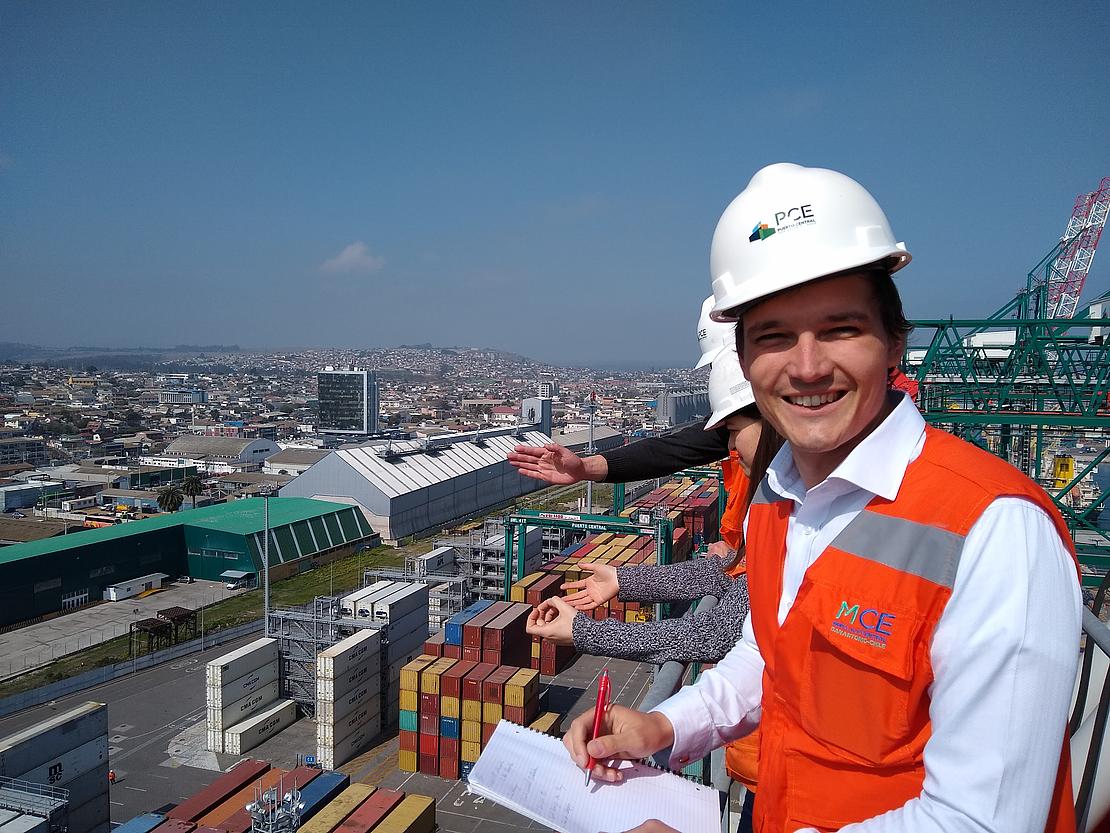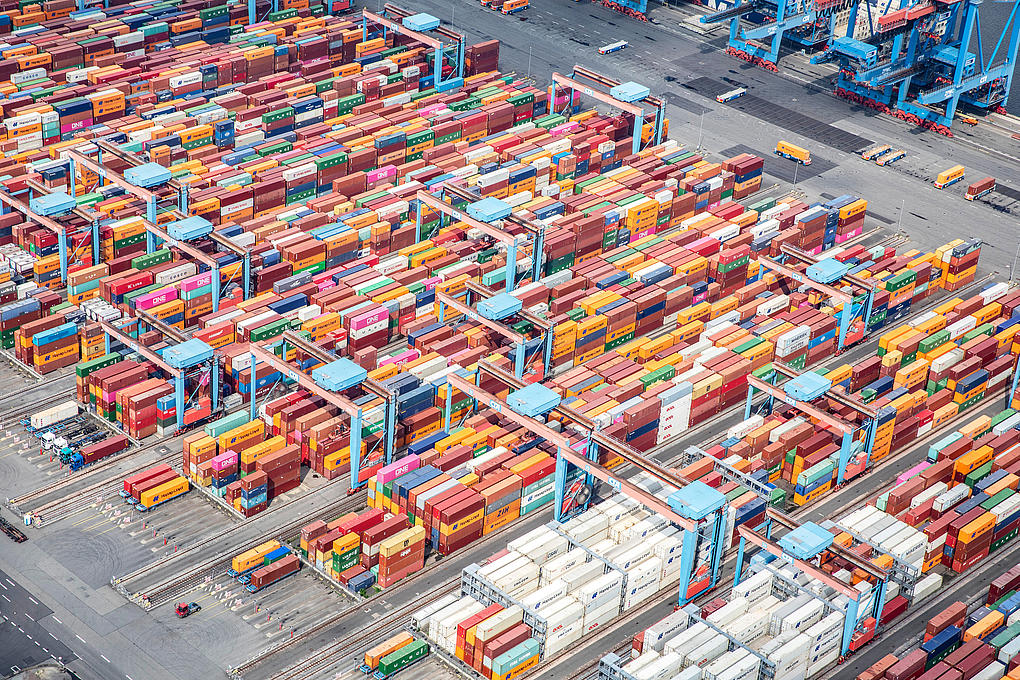
Pascal Brockmann had imagined the beginning of his working life quite differently. In 2008, he arrived at HHLA as a dual business administration student. At that time, the course in world trade was set for growth. Then came the collapse of the US-based Lehman Brothers bank, and the economic crisis that followed did not spare Hamburg and its ports. At the HHLA Container Terminal Burchardkai (CTB), where Brockmann worked in terminal development at that time, they suddenly had to think about solutions for crisis management instead of expanding terminal capacities. The assignment was to optimise workflows.
Brockmann couldn’t have guessed that people would always be asking him this same question. How can I make this process more efficient? The search for an answer is quite fiddly due to the many technical components, but it fascinates Brockmann to this day. After seven semesters and obtaining his degree, he strengthened terminal development at CTB.
For the young employee, born in 1989 in Reinbek near Hamburg, this first stage at HHLA was formative. “I learnt logistic processes in practice, not in theory,” he says, looking back. This was a big advantage for him when he moved to HPC Hamburg Port Consulting and started advising customers.
At HHLA’s consulting business, they soon realised the extent of the young man’s talents, which he describes as: “I can do a lot but nothing right – other than bring the right people together!”

Artificial Intelligence in logistics
What is AI all about, how does HHLA benefit from this technology and what are the advantages and disadvantages?
Dive into AI in logistics
Brockmann is being modest, because he is great with technical and IT-related topics as well as knowing people incredibly well. To be able to communicate even better with specialists, Brockmann started a Master’s degree in Engineering in 2015 in Barcelona, Riga and Berlin. “It was very technical and went all the way up to statistical calculations for ship construction,” he explains.
As an operations and IT consultant at HPC, he communicated his experience to mostly South American customers, but his expertise was also in demand at the HHLA terminals in Odessa and Tallinn. It was only logical that Brockmann would eventually land at HHLA International.
He is now the contact person for all operations, IT and technical topics coming from the international terminals. He attaches particular importance to strategic management in the development of the terminals, for example in equipment requirement planning and procurement, management processes and the digitalisation of customer communication.
The goal is to bring together the bearers of knowledge in Hamburg with their colleagues in the international terminals, he says. “This way, Tallinn and Odessa can profit from our experience, and we in Hamburg can profit from their new ideas.” Brockmann sees exciting growth potential in the overseas HHLA terminals. He is looking forward to finding the right adjustments, like he did with the right screws at his first station at HHLA, to make HHLA systems run more efficiently.